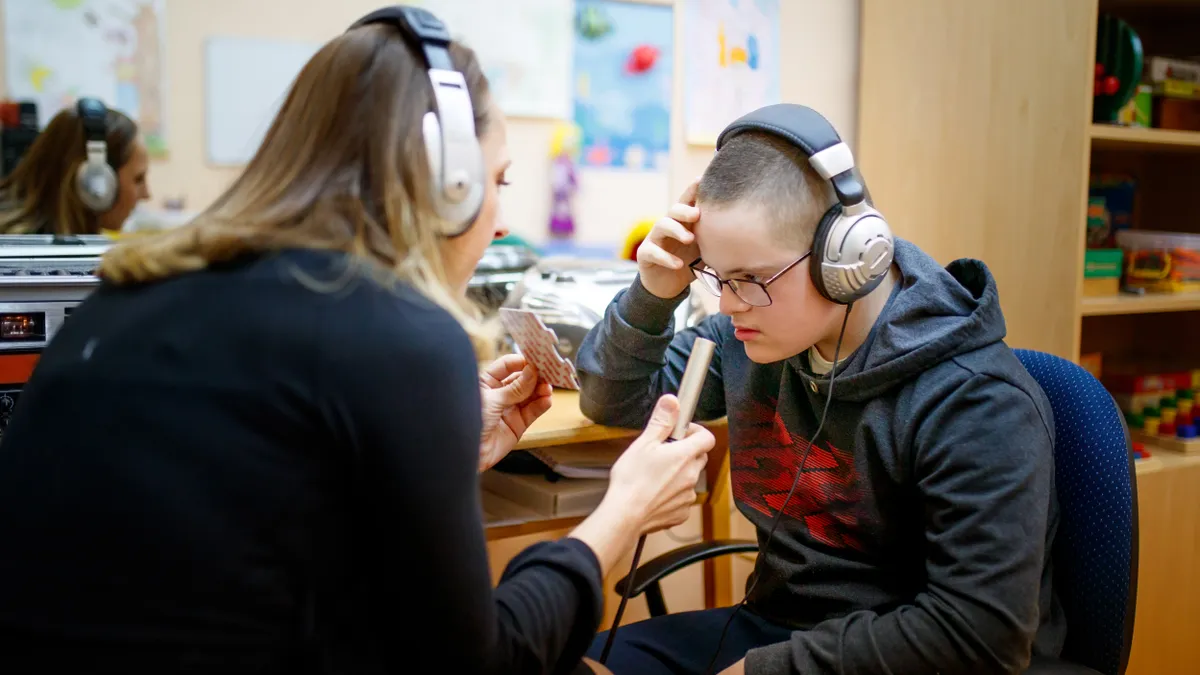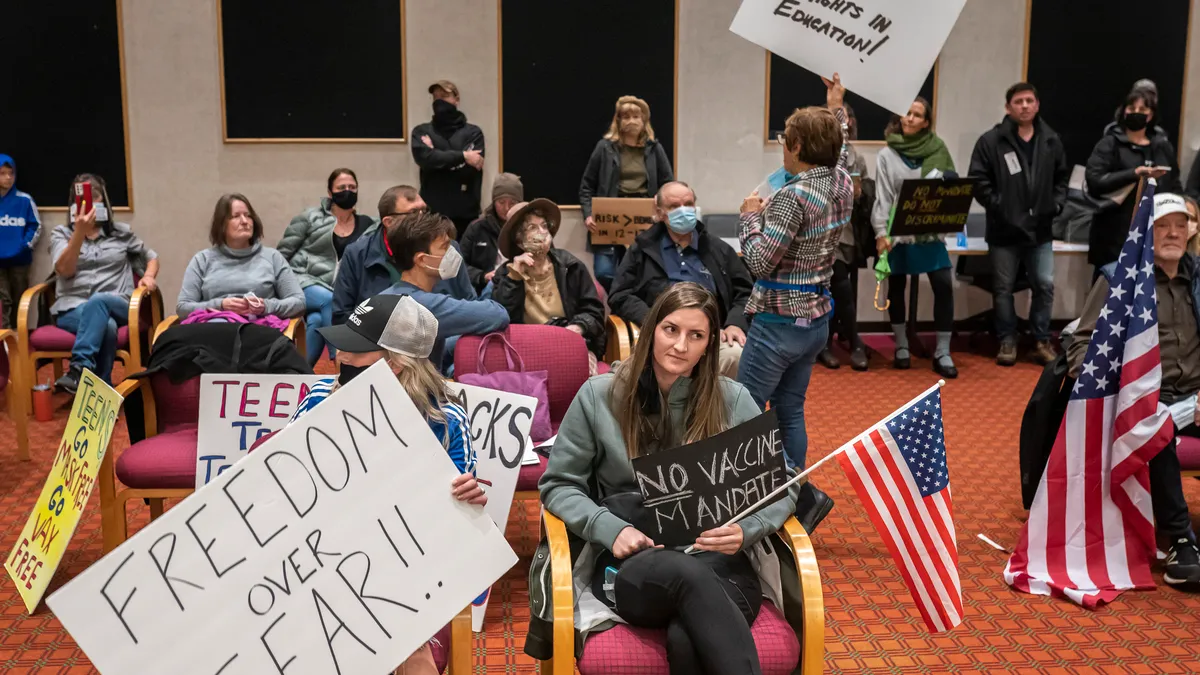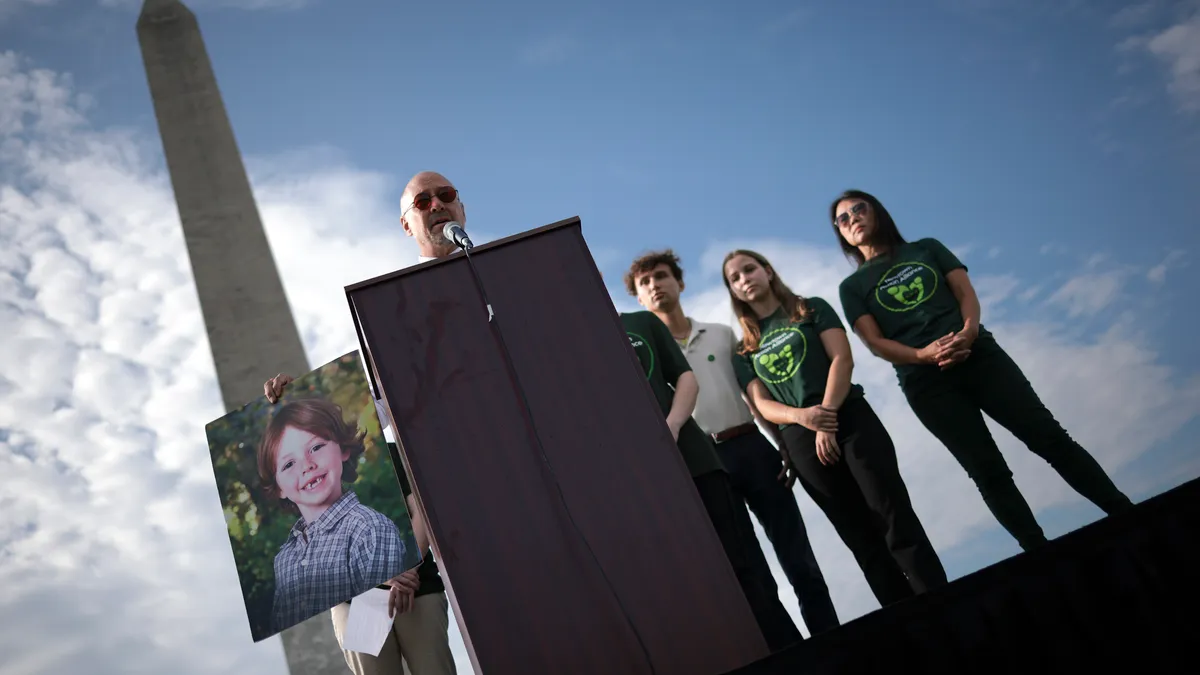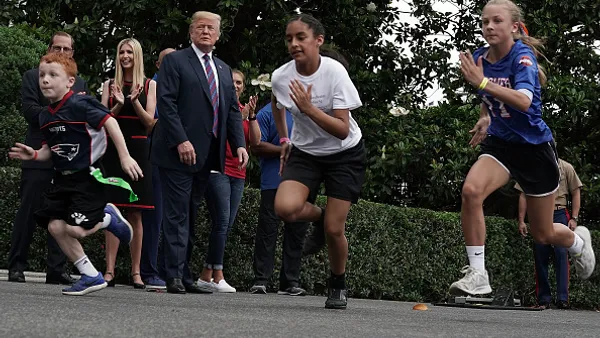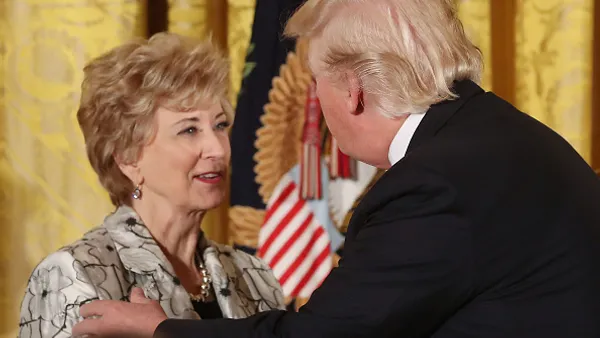Dive Brief:
- In a letter to state directors of special education on Tuesday, the U.S. Office of Special Education Programs emphasized that federal special education law requires elementary, middle and high school special education teachers to hold a bachelor's degree and be fully certified to teach special education.
- Special education teachers and related services personnel may not have their certification or license requirements waived on an emergency, temporary or provisional basis, the letter said. Teachers participating in alternate routes to obtain a special education certificate must follow certain requirements to be in compliance with federal rules.
- The special education field faces severe staff shortages. As states set policies to remove certain teacher requirements to fill vacancies, OSEP warns that, according to the Individuals with Disabilities Education Act, states must ensure special educators are adequately prepared and trained.
Dive Insight:
The specialized training that goes into certification programs required for educators teaching students with disabilities helps educators better meet the unique needs of students, advocates say.
The OSEP memo is timely, said Lynn Holdheide, managing technical assistance consultant for American Institutes for Research and co-director of the CEEDAR Center at the University of Florida.. Because of increased staff shortages, states and districts "need to fully understand the IDEA requirements for personnel — not only to ensure compliance, but we know through research that fully-prepared special education teachers improve student learning and stay in classrooms longer," said Holdheide in an email.
The CEEDAR Center is an OSEP technical assistance center focused on special education personnel preparation programs and was mentioned as one of several resources in OSEP's letter to state special education leaders.
OSEP's memo did not add to existing guidance but was meant to reiterate requirements and offer resources to states facing hiring challenges. "Based on media reports and discussions with States and advocates, OSEP is aware that some States currently have policies and procedures in place that may not be consistent with IDEA requirements," wrote OSEP Director Valerie Williams in the letter to states.
Candace Cortiella, director and founder of The Advocacy Institute, a nonprofit that works to improve the lives of children, youth and adults with disabilities, said in an email that the organization appreciates the clarity that OSEP’s memo brings to the issue "since there are numerous IDEA state complaints being filed on behalf of students being taught by uncertified teachers."
Cortiella did not have specific information about the complaints.
Special education experts have said the pandemic has exacerbated the critical shortage of teachers and related service providers, such as therapists and speech-language pathologists.
During a Special Education Legislative Summit in July, Kaitlyn Brennan, policy advisor for the Higher Education Consortium of Special Education, said that between 2020 and 2030, about 37,600 new special education teachers will be needed to serve students with disabilities. Brennan also said that in the past 10 years, the number of special education students has increased by 800,000.
In a survey of 904 schools released last month by the National Center for Education Statistics, respondents said special educators were among the top understaffed positions in schools.
Nationally, there were 7.2 million students ages 3–21 who received special education services under the IDEA in 2020-21, representing 15% of all public school students, according to NCES.



